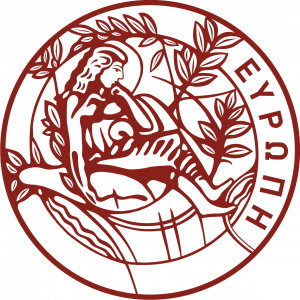As part of the European Year of Youth 2022, master’s students in the EU are invited to become “Young Observers” in Horizon Europe proposal evaluations.
This means you will see how the EU selects projects for funding.
What’s in it for you?
You will observe the work of independent experts evaluating proposals. This is a unique opportunity to experience directly how the EU budget for Horizon Europe is used, by selecting the best proposals in a fair and impartial evaluation process within a fiercely competitive environment.
You will gain knowledge and support to develop skills relevant for assessing proposals, getting an insider’s view and awareness of the opportunities of the EU funding programmes, that you may use later in your career.
If you are selected and participate successfully, you will receive a ‘Young Observer’ certificate, awarded by the European Commission.
You will play a pivotal role in testing this new initiative, by giving feedback to the European Commission and taking part in follow up actions to inspire young people to engage with research.
Who can apply
Students currently enrolled in a master’s programme, in any discipline, at a university in an EU Member State can apply to this initiative. Students from disadvantaged and diverse backgrounds or belonging to vulnerable and marginalised groups are particularly encouraged to apply.
What happens if you are selected?
Once selected as a Young Observer you will be invited to participate in Horizon Europe call evaluations taking place from September 2022. The evaluations cover all fields of science in the broad sense, ranging from social sciences and humanities to natural sciences and engineering.
You will take part from the beginning of the evaluations of the relevant call to the recommendation of funded proposals in the so-called ‘panel meeting’.
The evaluations take place online, but in limited cases an onsite evaluation meeting in Brussels might take place. In case of onsite participation, the travel and accommodation costs and a daily allowance will be covered by the European Commission.
You will receive an introductory seminar that will cover all aspects of the evaluation, including practical training and ethical issues (confidentiality, conflicts of interest, code of conduct, etc.) to help you become sufficiently familiar with the process and topics evaluated and make the most of your experience.
From the start of your observation of the evaluation process, you will be matched with a mentor from the European Commission, who will accompany you throughout the process.
Your part in the process
During the evaluation, you will have the following roles:
- observe the conduct of the evaluation process
- participate in a dedicated seminar on the evaluation process as well as practical and ethical issues around your participation
- take part in consensus and panel meetings, as an observer
- draft a short report, describing your perspective of the evaluation as a Young Observer
After the evaluation, you may be invited to participate in follow-up activities that could be organised by universities and other partners with the support of the European Commission, to share your experience.
Universities are important partners in this initiative and can encourage and support applicants. Universities with students participating in Horizon Europe evaluations as Young Observers may be invited to take part in follow-up activities at different levels (European, national, regional) that will aim to share the Young Observers’ experience in research communities.
More / how to apply: https://ec.europa.eu/info/research-and-innovation/funding/funding-opportunities/funding-programmes-and-open-calls/horizon-europe/become-horizon-europe-young-observer_en

